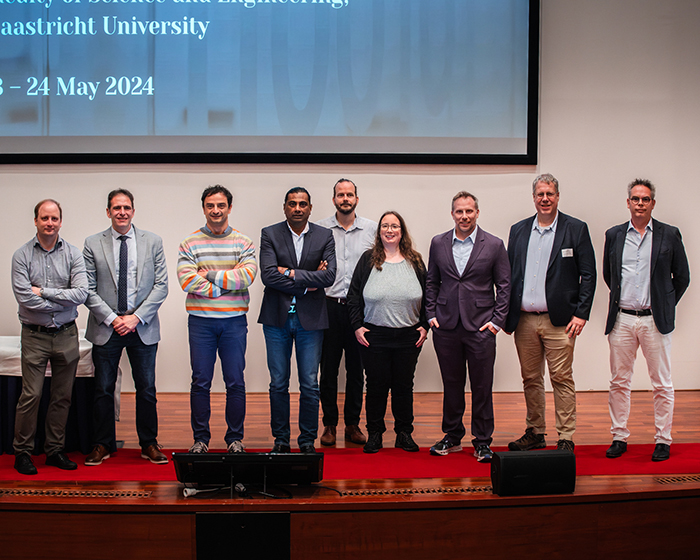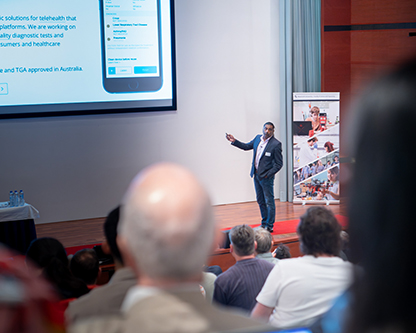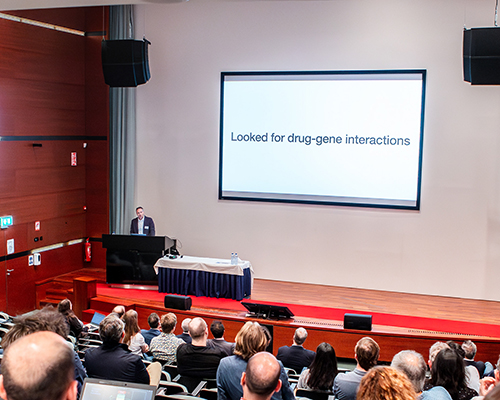
Both Matt Might, Ph.D., director of the Hugh Kaul Precision Medicine Institute (PMI), and Rubin Pillay, M.D., Ph.D., director of the Marnix E. Heersink Institute for Biomedical Innovation (innovation institute), are leaders in health care innovation at UAB and were speakers at the event. The symposium emphasized patient empowerment, improved health management, and AI’s potential for accurate diagnostics and operational efficiency. Discussions also covered AI’s role in expanding health care access through affordable, automated solutions, along with ethical and regulatory considerations.
“There were several fruitful collaborations that emerged from the symposium,” said Might. “The interdisciplinary nature of the event allowed for the exchange of ideas and expertise, leading to potential collaborations on projects related to AI in medicine. It was exciting to witness the synergy generated by professionals coming together.”

“AI is poised to revolutionize health care by enabling more precise and personalized treatment plans,” said Pillay. “At the symposium, we explored how AI can enhance patient outcomes by integrating large-scale data analytics into clinical practice. AI tools are becoming indispensable in developing patient-centric approaches and optimizing health care delivery.”
Might and Pillay are part of the growing strategic collaboration between UAB and Maastricht University surrounding medicine and artificial intelligence. Attending the event presented a unique opportunity to collaborate and network with key stakeholders in the Netherlands and Europe.
“My participation in the symposium strengthened an existing research collaboration between PMI and Michel Dumontier, director of the Institute for Data Science at Maastricht,” said Might. “This growing collaboration will be increasingly instrumental in advancing our research and exploring the potential of AI in health care.”
The symposium highlighted AI’s potential to transform health care by enhancing diagnostics and treatments.
“AI can revolutionize health care by augmenting diagnostic and therapeutic approaches,” said Might. “The symposium emphasized the importance of leveraging AI to personalize treatments and improve patient outcomes in light of the large amounts of data now available on patients. There was also an emphasis on the rise of patient-centric tools for generating data that once required a physician, such as at-home EKG kits.”

“At PMI, our research aims to identify pathways toward tailored treatments for patients, and AI plays a crucial role in this pursuit,” said Might. “By leveraging AI algorithms and analytics, we can analyze complex datasets to uncover patterns and insights that inform personalized treatment strategies.”
“The integration of AI in health care not only enhances precision in diagnosis and treatment but also democratizes access to medical knowledge and resources,” said Pillay. “AI-driven tools and applications can bridge gaps in health care delivery, making it more accessible and equitable, especially in underserved areas.”
Through collaboration and innovation, UAB faculty continue toward a future where health care is more proactive, preventive, and patient-centered. The symposium underscored the critical role that AI will play in this transformation, driving forward advancements that promise to reshape the landscape of medicine for the better.